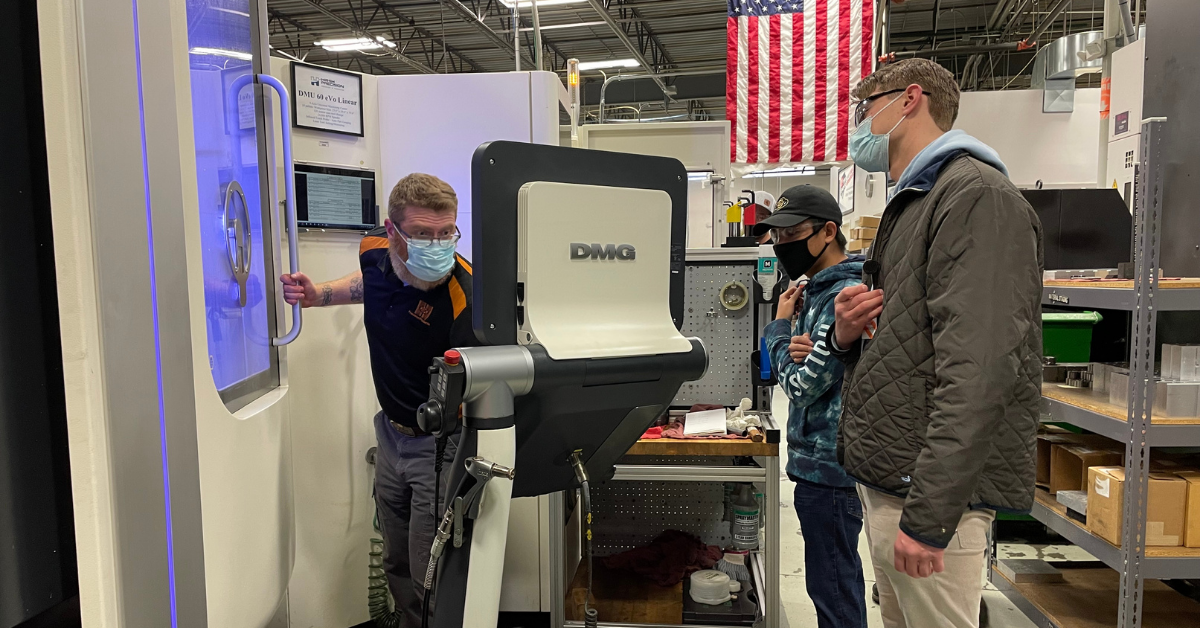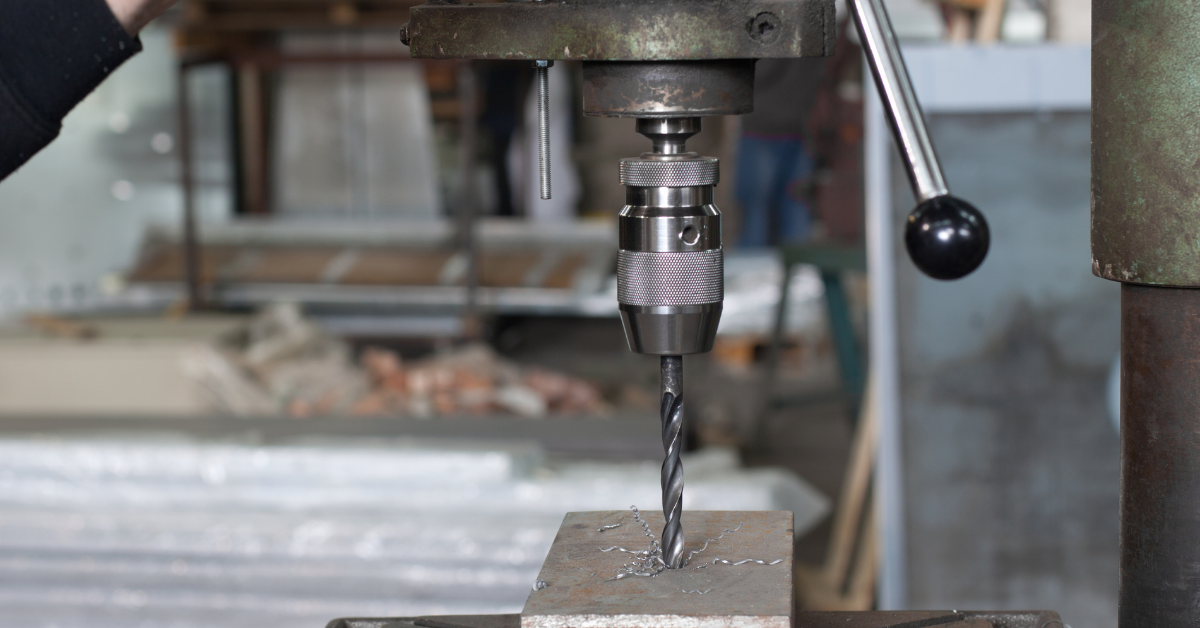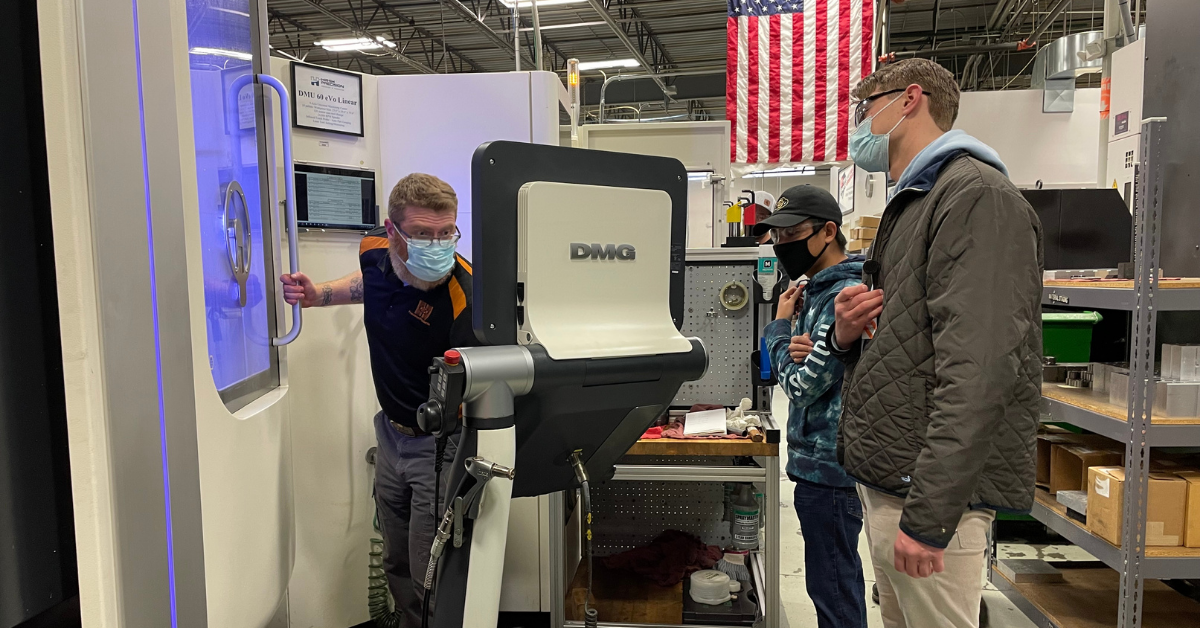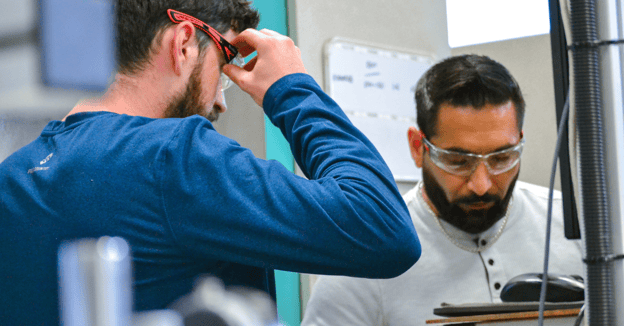More and more conversations about workforce and career development are taking place as we continue to tackle the ongoing workforce problem that the manufacturing industry is facing.
With more than 4.6 million jobs needing to be filled by 2030, it’s more important than ever to help up-and-coming manufacturing professionals understand how they can advance their career and what opportunities are available to them.
Following a recent webinar hosted by several of our engineering, machining, and quality experts, we’ve assembled 10 proactive steps that students and young professionals can take to advance their careers in the manufacturing industry.
1. Visit a Local Machine Shop

If you want to pursue a career in precision manufacturing, there is no better way to set out on this path than by visiting a local machine shop.
“Don't limit your engagement. If there's a shop nearby, give them a call or send them an email, see if they'd like to host you. Being able to actually get some exposure is what drew me in, so if you have any opportunities – take full advantage,” Nate Clark, Estimations Specialist.
Visiting a local machine shop is a great way to establish important professional relationships, see a cutting-edge manufacturing operation up close, and figure out next steps for your career.
Contact Hirsh Precision if you live in the Boulder or Denver Metro area and would like to tour our precision manufacturing facility.
2. Learn GD&T
Geometric dimension and tolerancing (GD&T) has been around since CNC machines came onto the scene, and it is literally the language of manufacturing. Learning GD&T, and learning it well, is essential if you want to enter the programming and production side of precision manufacturing.
As parts and the relationships between features continue to get more complex, tolerances are getting tighter, and engineers are pushing the limit of what we can make. Knowing this, it’s critical to learn GD&T as early in your career as possible.
3. Become a Student of the Industry
In our recent career development webinar that featured many of our engineers, programmers and machinists, there was a common piece of advice that bridged all their experiences in the manufacturing industry: never stop learning.
Once you realize how multi-faceted this industry is, it’s essential to become what we call a “student of the industry.” From machining tools to inspection methods, material science to automation, and programming to supply chain – it’s important to develop learning habits early on and never give them up as your career progresses and the industry continues to evolve.
“There's so much to learn – development in machine tools, inspection methods, materials - there's just so much to learn that if I'd had the opportunity to actually walk into a shop 15 years ago, I would've gotten started in this industry a lot sooner,” Nate Clark.
Find industry resources, develop relationships with experts who can teach you, and become a self-starter so that you’re constantly adding manufacturing skills to your arsenal.
4. Try Your Hand at Manual Machining

As technological advancements continue to take the manufacturing industry by storm, and with the widespread use of CNC machines in manufacturing shops across the U.S., there is not as strong an emphasis on manual machining like there was in the 1970s and 1980s when CNCs first came on the scene. But in many cases, there are machinists with manual machining experience who can hold a tighter tolerance than a recent graduate from a well-funded program who’s used exclusively CNC machines.
“[with manual machining]…there is so much you would learn about work holding and how hard you can push on a part with cutters and have it stay in place. That would be applicable to CNC machining,” Steve Hirsh, Founder of Hirsh Precision and Director of Engineering.
There is plenty you can learn about speeds, feeds, material properties, and fixturing from manual machining that can enhance your craft as a CNC machinist.
5. Learn Machine Tooling Technology
As precision manufacturers, our goal is to help bring a design engineer’s idea into reality, and from the machining side of things, staying up to date with tooling technology is essential.
“As a machinist, the go-between for the CNC machine and material is the tooling. Sometimes that can be the most important aspect of solving a problem,” Zach Mullen, 5-axis Mill Lead.
There are tons of resources available that can help you stay current on machine tool technology, but there are few better than those distributed by quality machine tool companies. You can get lots of educational content directly from the machine tool manufacturers delivered straight to your inbox, or by following their social media.
6. Use Social Media as a Learning Resource

Whether you are brand new to the industry or have several years of experience, social media can be one of your greatest learning resources.
“We're all on social media and I think that's a great way to get information. If you're searching for machining and looking at YouTube videos about machining, you're going to get ads that pop up about tooling…so just to give you an example I was scrolling through an Instagram post and within a week I was able to apply what I've learned and see the results,” said Zach Mullen.
Whether it’s watching videos about tooling on YouTube, participating in a discussion forum on Reddit, or reading an article about industry trends that you found on LinkedIn, social media is an incredibly valuable, free learning resource that you can use to advance your career.
7. Use Manufacturing Career Resources
As part of the industry’s ongoing efforts to address the workforce shortages in manufacturing, there are many organizations that are dedicated specifically to the workforce and career development of manufacturers and manufacturing professionals, respectively.
This includes organizations like SME, the Manufacturing Institute, the National Association of Manufacturers, and the Association for Manufacturing Technology (AMTS).
8. Learn Software
Manufacturing is a digital game these days, and software is at the heart of it all. From ERP systems to quoting software, CAD to CAM, and don’t forget CMM programs – software is found in all major manufacturing operations.
“…software for programming the parts, software for inspecting the parts - I think those will take a person a long way,” Steve Hirsh.
As you start to think about your manufacturing career, whether you’re interested in engineering, machining, quality, or automation, consider which types of software would be important for you to know and keep trying to level up your skills.
9. Find a Mentor

There are many great resources online and across social media to help you learn the manufacturing industry and advance your career, but it’s hard to replace the quality of learning you get when you work with a mentor.
“As young people join a new role today, it's important to look for who might be able to coach you or mentor you and where you would be able to glean the benefit of their experience,” Peter Doyle.
Mentors can shorten your learning curve, teach you new ways of thinking, and demonstrate how you can keep progressing in your manufacturing career. Whether you’re a student or a young professional, finding a mentor and learning from their experience will have a huge impact on your career for years to come.
10. Follow Industry Trends
The manufacturing industry is changing rapidly, especially as COVID restrictions ease up and manufacturing activities begin to rebound. Another way to stay on top of your career development is by keeping an eye on industry trends.
“Be a student of the industry, because as the industry is evolving, a graduate that comes into the workforce thinking that they know everything or that it's going to be a steady job is not going to be fully prepared,” said Peter Doyle, President & CEO.
Additive manufacturing, integrated automation, and a rise in robotics are just a few of the changes that are starting to spread across the manufacturing industry. With more of these changes undoubtedly on the horizon, it’s critical that you regularly tune into resources like Deloitte and Modern Machine Shop in order to stay updated on industry trends.
As you consider your own manufacturing career, think about which of these tips would be most helpful for you. If you have questions about how to advance, or even start, your manufacturing career, feel free to contact our team.




